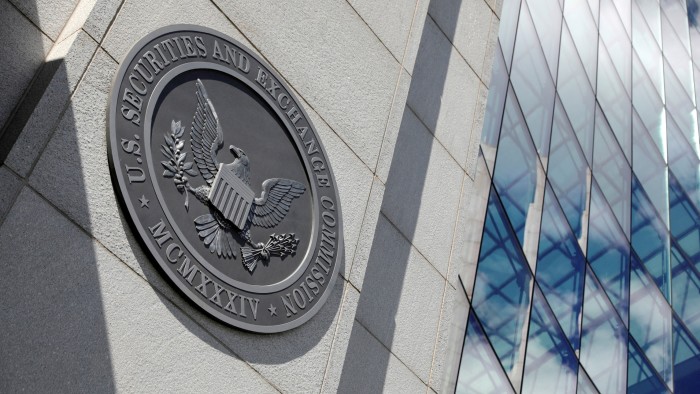Unlock the Editor’s Digest for free
Roula Khalaf, Editor of the FT, selects her favourite stories in this weekly newsletter.
The author is chief executive of GTS, a market making and proprietary trading firm
With a new chair incoming at the Securities and Exchange Commission, the Trump administration has an opportunity to return US markets regulation to a more predictable path.
President Donald Trump’s pick of Paul Atkins is a good start. He’ll have his hands full in unravelling former chair Gary Gensler’s activist campaign at the SEC while addressing a number of consequential challenges. These include competition from overseas rivals, reviving the flow of initial public offerings and the need to create a regulatory framework for crypto assets.
Under acting chair Mark Uyeda, the SEC has already hit the ground running with the creation of a new crypto task force led by Commissioner Hester Peirce. As noted in the task force announcement in January, “to date, the SEC has relied primarily on enforcement actions to regulate crypto retroactively and reactively, often adopting novel and untested legal interpretations along the way.” In other words, the regulators made it up as they went along.
Under Gensler, the SEC pursued what is known derisively as “regulation by enforcement.” Essentially, the SEC sued someone, then used the outcome as a new standard it applied to the rest of the industry. Gensler was not shy about unleashing a blizzard of new regulation — 34 final substantive rules, exceeding that of his three most recent predecessors by 36 per cent on average, according to the Committee on Capital Markets Regulation. But there was a lack of clarity on crypto.
So one of the real opportunities now for SEC is to take the dynamic crypto industry forward by creating a sensible regulatory framework for it. The lack of regulatory certainty has driven many cryptocurrency exchange operations overseas, depriving the country of a potentially massive market and making it even more challenging to share the cost of enforcement.
There are plenty of open regulatory questions to keep the SEC’s crypto task force busy, but one obvious fix relates to a financial product that has seen massive growth: crypto ETFs that track prices of digital currencies. Since these ETFs were finally approved last year by the SEC after long delay, they have proven popular with investors. There is now more than $100bn in bitcoin ETF assets alone. Yet current regulatory constraints have hampered efficiency in this market.
One of the core components of the ETF market is the creation and redemption process for investments facilitated by broker-dealers like my firm. When undertaking this activity for traditional ETFs we use the underlying securities to hedge our exposure and provide efficient pricing. Yet we’re currently prevented from transacting in the digital currencies underlying crypto ETFs, and thus must rely on less efficient hedges.
It’s like a restaurant trying to cook a meal with missing ingredients. They’ll have to spend extra time and effort finding substitutions, which may increase costs to their customers, and in the end the final product won’t be the same as the original. The SEC can solve this problem by providing clear guidance on how broker-dealers can gain exposure to spot crypto markets.
Another area the SEC should address is a funding source for crypto oversight. One of the most galling aspects of the SEC’s rampage against crypto is that it was paid for by participants in the traditional securities market in the form of “Section 31” fees, which are named after a section of the Securities Exchange Act of 1934. These are paid to the SEC to offset the government’s costs to supervise and regulate the securities industry. In the current environment, even if an investor wants nothing to do with crypto, they’re still paying for it. The sooner crypto is formally regulated, the sooner it can share the cost of its oversight.
There are countless other significant issues for the new SEC leadership to address in both the crypto and traditional securities markets, but what should cheer financial market participants and individual investors alike is that it seems intent — as highlighted by the formation of the crypto task force — on returning to the SEC’s historic approach of thoughtful rulemaking that is deliberative, inclusive of industry expertise, and data driven.
As I testified before the US House Committee on Financial Services last year, US equity markets are the global gold standard. However, we cannot take that position for granted. The new administration has an opportunity to right the regulatory ship, and all signs point to them moving ahead in that direction.
https://www.ft.com/content/96c3a8da-e3c5-4b19-a848-08995cda91a4


